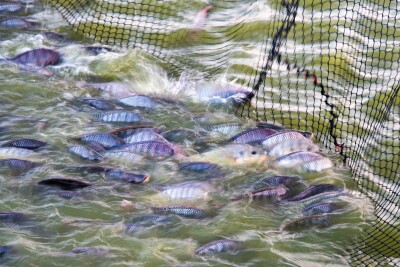Safekeeping
The loss of two New England draggers rekindles discussion about reducing risk to fishermen
By Becky W. Evans
On a stormy night in December 2004, the fishing vessel Northern Edge rolled over and sank off Nantucket when one of its scallop dredges got snagged on the ocean bottom. Five of the six fishermen aboard the 75-foot New Bedford, Mass., scalloper drowned. The sixth fisherman — who had had passed a mandatory fishermen's training program in Portugal — survived by swimming to the unopened life raft, inflating it and climbing inside.
"It was a devastating loss," said Michael Matulaitis, who captains a New Bedford dragger. "It brought to the city more awareness of safety issues."
The tragedy highlighted a flaw in scallop regulations that penalized a vessel for breaking a trip and steaming home in bad weather. Fishermen and politicians blamed the regulation for the Northern Edge's sinking and urged NMFS to amend the rules. The agency responded by implementing new rules allowing scallopers to seek safe harbor during storms without losing part of their catch.
Concern for the safety of fishermen led the agency to award a $100,000 grant to the city of New Bedford, which developed a free, voluntary safety training program. More than 700 fishermen have participated in the program, which includes lessons in fire-fighting, flare-shooting, leak-plugging and life raft deployment.
Now, two years later, back-to-back winter fishing tragedies have reignited the debate about the need for better fishing safety regulations.
Four New Bedford fishermen died at sea when the dragger Lady of Grace sank in Nantucket Sound on Jan. 26. Six days later, two fishermen — one from New Hampshire and the other from Massachusetts — were lost at sea when the 52-foot Lady Luck disappeared off the coast of Maine.
The 75-foot Lady of Grace was returning early from a Georges Bank fishing trip during bad weather. While the cause of the sinking is unknown, Coast Guard officials are investigating whether icing may have caused the vessel to suddenly roll over.
A Coast Guard search located a distress beacon and, weeks later, the wreckage from the Lady Luck off the shoals of Portland, Maine. But the missing crewmen were never found.
In light of the two accidents, some fishermen and their families are calling for more stringent safety regulations, including mandatory vessel stability tests for vessels under 79 feet and mandatory licensing for captains of those vessels.
Others argue that NMFS must eliminate fishing regulations that might encourage fishermen to take unnecessary risks, such as going out in bad weather to make the most of limited fishing days.
Still others contend that fishing safety is not the federal government's responsibility, but rather that of boat owners, captains and crewmen.
Oversight hearings on safety issues in the maritime industry, including commercial fishing, are included in the House Committee on Transportation and Infrastructure's oversight plan for the 110th Congress.
With the U.S. House of Representatives beginning work on a Coast Guard reauthorization bill, U.S. Rep. Barney Frank (D-Mass.) scheduled a safety forum in New Bedford at the end of March so fishermen could discuss the need for additional fishing safety regulations.






